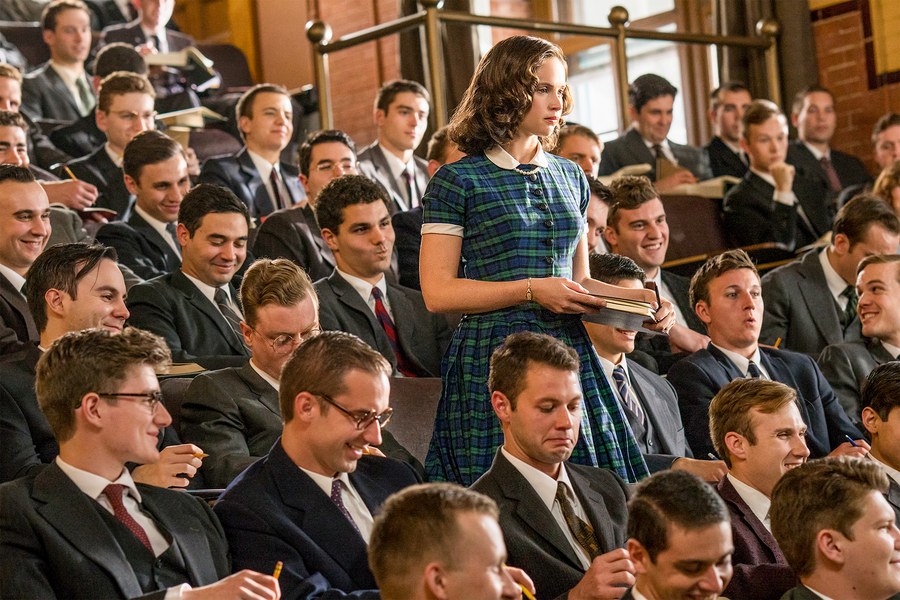On the Basis of Sex, the biopic of the early years of Judge Ruth Bader Ginsburg is too earnest and too conforming to the conventions (and clichés) of a mainstream Hollywood biopic.

Our grade: B- (** out of *****)
It’s important to remember that the real Ginsburg has been on the nine-member Supreme Court since 1993; the Senate vote for her was almost unanimous., 96-3. Lately, she has been in the news due to a series of illnesses, getting in and out of the hospital.
Set in the mid-1950s, it begins with Ruth Bader Ginsburg (Felicity Jones), a first-year Harvard law student, on of nine select women in her class. In a parade of mostly males in Cambridge, accompanied by the song “Ten Thousand Men of Harvard,” is the attractive Ruth, who’s too short (as he husband jokes about it when thy make out).

At a dinner party, when asked by Erwin Griswold, the law school dean (Sam Waterston), whether they have right to be there, the range of answers is varied (but lame), underlining the point that Harvard Law School may not be a place for a woman.
The family must have been involved indirectly in making Mimi Leder’s biopic, since it is based on a script by Daniel Stiepleman, who is Ginsburg’s nephew.
Instead of an attempt of a more comprehensive portrait of Ginsburg’s career, the movie focuses on her first sex-discrimination in federal court in the early 1970s, and on her legal strategy to challenge injustices.



I wish the movie went deeper into the complex issue of progress–its differing definitions and meanings, even for men (and women) who proclaim to be modern, liberal, and progressive. Ginsburg is contrasted with Dorothy Kenyon (Kathy Bates), a civil rights lawyer whose efforts to challenge and change discrimination failed.
End Note:



